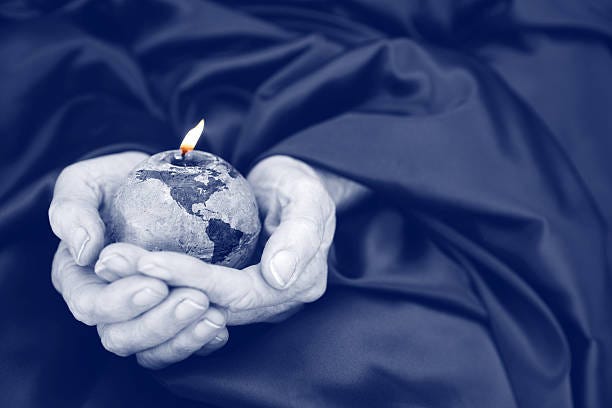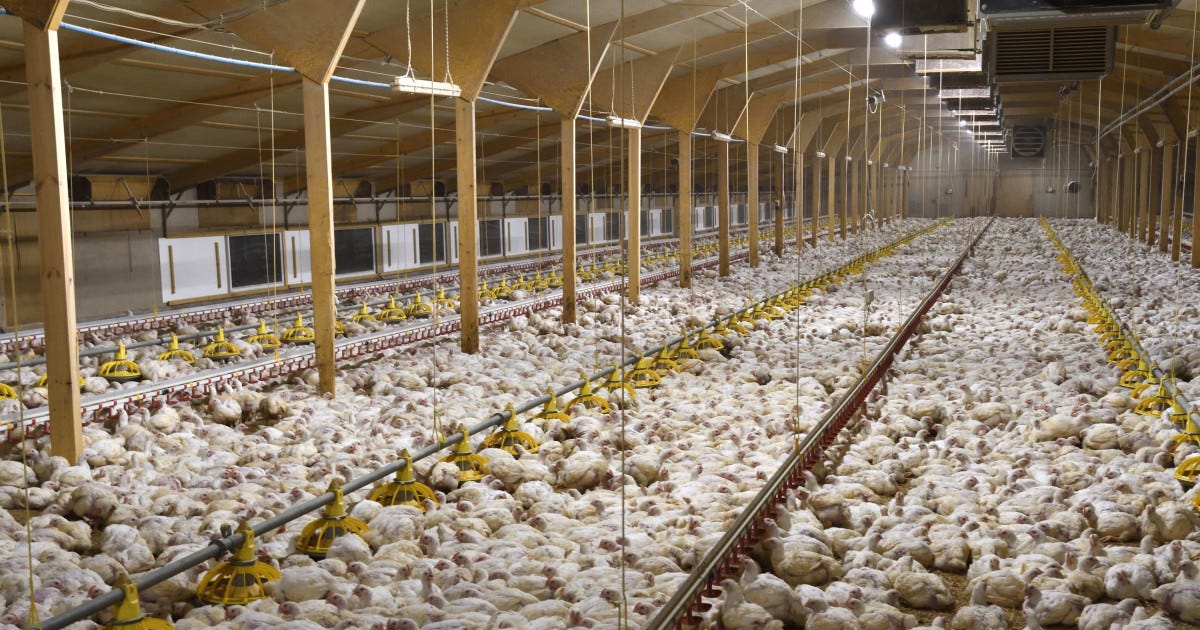“Remember, we are always looking for the heat,” Susan Conley reminds the ten of us in her winter writing class. “The reader will stay with you if you can create emotional heat in your story.” I would have sworn that the heat in last week’s essay was around the part where I debunked the sturdiness of hope as a tool to address climate breakdown. I thought it might be like pulling a chair out from under you, reader, and I’d find you sprawled on the floor mumbling about how mean I am to that sweet “thing with feathers that perches in the soul.”
And too I would have said there was heat in the scene where the school bus pulls up at the corner, little kids timidly maneuvering the high step off the bus, parents gathered around their cars, laughing. Or heat around the word love which showed up so red and blinking the week of Valentines, love which made me ache for the kind of future the generations coming after me will face.
But I was wrong! It was that trip to Paris, the City of Love, that held the heat, or rather, more precisely, it was my decision not go to Paris, to “sacrifice for what I love” that drew all the heat, and triggered strong emotional responses from many of you.
“Can we still be friends?” you asked, friends after you return from a long planned and eagerly anticipated trip to Paris to celebrate an anniversary or a Big Birthday? One person wrote to say that just before she opened the blog she’d written “book TX to Paris” in her memo pad and was reluctant to write and tell me that. And bless her, she explained in detail why the trip was so important and by the time she was finished I was ready to buy her a ticket myself.
Others were, very kindly, ardent about finding a way to get me there. Carbon offset programs suggested one person! A few extra dollars will buy me a slice of rainforest, just enough to sequester the carbon from my plane trip. Oh! Thank you, reader, for that suggestion but don’t get me started on that greenwashing scam. Here’s a link to a piece in the Times that lays out the greenwashing argument. Or how about a different kind of carbon offset suggested another good soul: I give up x # of steaks and save X lbs of carbon = to 1 trans-Atlantic flight to Paris!!
And a few people said they were worried about me and urged me to take care of myself. A family member suggested I stop reading any more about climate breakdown and instead read some good fiction. A dear friend worried about my being “whooshed into a psychological vortex of despair.”
Now I, the minder of minds, am filled with curiosity! What’s happening here? What is there to learn about climate activism from your reactions to the Paris story, readers? But first, I want to thank you all for your worry and concern and rush to say that I am doing just fine and that I have no less love and care for anyone taking that trip to Paris or Costa Rica or anywhere else. I didn’t intend to make anyone feel guilty and I try very hard not to claim any moral high ground for I am aware that I am no saint, that the lifestyle I’m living emits more carbon than any other lifestyle in the world and is a result of great privilege and comes to me from lifetimes of exploitation and ignorance.
Maybe that’s where to begin—with the question of how to hold the weight of consciousness about the harms that birthed this prosperous American lifestyle and the ongoing harms that this lifestyle yields day by day. Examine the whole story of the production, transportation and use of any one common thing we consume, throw off the blankets of ignorance surrounding, say the roast chicken you will eat for dinner, and there’s enough pain and heat lying there to bring you to your knees. I know you’ve seen the pictures of the dark, football field sized factories where chickens are confined, never seeing daylight, sleeping in their own feces, fed grain grown on monoculture farms using petroleum based fertilizers. 9 billion chickens a year are raised this way in the USA alone, all of it on land that belonged up until a few hundred years ago to people who were violently disposed of that land.
And that’s just one chicken for dinner.
It’s almost unbearable, staying conscious to the harm caused by living on the scale we’ve celebrated as so miraculous!! And if we look, if we keep that consciousness in mind how do we go about our lives? The harms are so great.
Where do we draw the lines? One plane flight less a year, ten? No bunches of roses from Equador, snatched from the front of the grocery store? Maybe just one? Does contemplating taking individual lifestyle action kick up so much distress and uncertainty that we need to slam the door on the moral dilemmas and pick up that roast chicken under the plastic dome beckoning with its honey-brown skin from the deli aisle, take it home, uncork the Beaujolais and watch another episode of Squid Game?
And what about the word sacrifice, which is how I described the Not going to Paris decision? Check your body: what do you feel when you read the word sacrifice? I doubt it’s Yes! Sign me up for the sacrifice climate action! And furthermore, who sacrifices? Saints, mystics, the second person in God, mythical creatures. And doesn’t sacrifice make you thin and unhealthy? Or maybe sacrifice will even kill you. Merriam Webster: “An act of offering to a deity something precious: especially the killing of a victim on an altar.” Maybe that’s why everyone is so worried about me!
And how can we do this all alone! And what will it matter, anyway? I concede that one of the big barriers to making an individual sacrifice like not flying to Paris is the feeling that the action doesn’t have efficacy. Would it have more efficacy if 100 people took a pledge to forgo a transatlantic flight? Would it matter if everyone in your town made a pledge or in your state? Would it matter if you knew some of these people and could plan something to do together that was fun and gave you a sense of connection to others who care too?
This is where I get excited thinking about how to persuade people to (sacrifice) change a harmful lifestyle choice by doing it together, where my own despair lifts and I feel both a sense of efficacy and a feeling of being accompanied. I am aware that it is a big leap: to go from holding the painful consciousness about the exploitive systems we are living in to feeling energized, held, seen, and part of something which is, for lack of a better word, good.
Let me tell you about a program we are about to start in Freeport to get folks to walk by that roast chicken and belly up to the beans counter.
As the coordinator of FreeportCAN, now a 501c3, I applied for and won a grant through the Center for Behavior and Climate to design and implement a program to increase plant-based eating in our town. We have assembled an enthusiastic committee and together we will construct the year’s long project. We will measure whether our project resulted in a decrease in carbon emissions and if so, how much. Then we can let everyone know how their individual action, combined with the actions of others, made a difference. If our next-door neighbor, Yarmouth, discovers what we are doing perhaps they will do the same thing, and maybe Portland, foodie heaven, will too!
When the summer comes, we will come together around that most basic of nourishments: food and music. We will have weekly plant-based potlucks under the pavilion at a town park nestled beside the ocean which will be followed by an outdoor concert sponsored by our local arts group, Meetinghouse Arts. Ocean, merriment, music, families, and corn tortillas!!
Then maybe next year we will have learned enough about how to change behavior by highlighting the efficacy and joy of community action that we can take on another set of behaviors. Maybe then I won’t generate so much heat when I talk about sacrificing a trip to Paris and instead coming together at Meetinghouse Arts for a concert: Edith Piaf, Maurice Chevalier? Next year? Springtime?







Thanks so much for boldly talking about sacrificing. I’d love to go to Greenland and feel it would be an insult to fly there to see the melting glaciers. Challenging myself to question why I need to see that part of earth. I’m concerned about the detachment, denial, despair and depression in our culture -all to avoid or repress consciousness of our reality. Thank you again snd I love your use of “heat”. Deborah
What an incisive & decisive intellect you have! There's much here to admire & emulate. "Multo admiro."